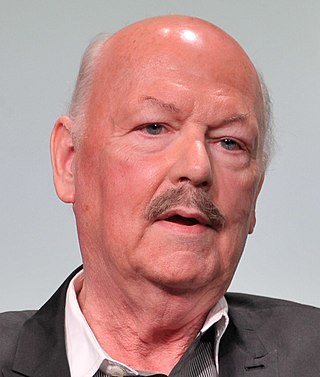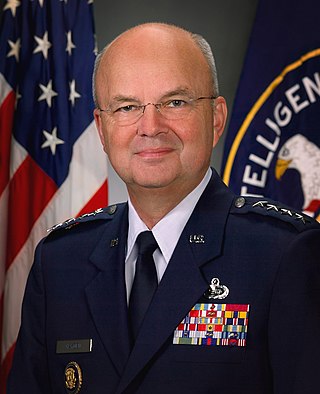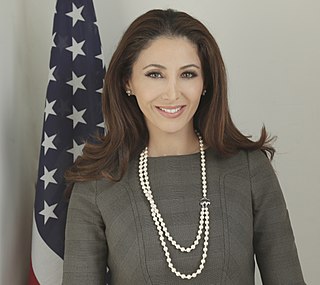
ECHELON, originally a secret government code name, is a surveillance program operated by the five signatory states to the UKUSA Security Agreement: Australia, Canada, New Zealand, the United Kingdom and the United States, also known as the Five Eyes.

The National Security Agency (NSA) is a national-level intelligence agency of the United States Department of Defense, under the authority of the Director of National Intelligence (DNI). The NSA is responsible for global monitoring, collection, and processing of information and data for foreign and domestic intelligence and counterintelligence purposes, specializing in a discipline known as signals intelligence (SIGINT). The NSA is also tasked with the protection of U.S. communications networks and information systems. The NSA relies on a variety of measures to accomplish its mission, the majority of which are clandestine. The existence of the NSA was not revealed until 1975. The NSA has roughly 32,000 employees.

The Central Security Service (CSS) is a combat support agency of the United States Department of Defense which was established in 1972 to integrate the National Security Agency (NSA) and the Service Cryptologic Components (SCC) of the United States Armed Forces in the field of signals intelligence, cryptology, and information assurance at the tactical level. In 2002, the CSS had approximately 25,000 uniformed members. It is part of the United States Intelligence Community.

Enemy of the State is a 1998 American political action thriller film directed by Tony Scott, written by David Marconi, produced by Jerry Bruckheimer, and starring Will Smith and Gene Hackman with an ensemble supporting cast consisting of Jon Voight, Lisa Bonet, Gabriel Byrne, Dan Butler, Loren Dean, Jack Black, Jake Busey, Barry Pepper, Scott Caan, Jason Lee, Tom Sizemore, Seth Green, and Regina King. The film tells the story of a group of corrupt National Security Agency (NSA) agents conspiring to kill a congressman and the cover-up that ensues after a tape of the murder ends up in the possession of an unsuspecting lawyer.
The United States National Student Association (NSA) was a confederation of college and university student governments that was in operation from 1947 to 1978.

Clockstoppers is a 2002 American science fiction action comedy film directed by Jonathan Frakes and produced by Gale Anne Hurd and Julia Pistor. The film stars Jesse Bradford, Paula Garcés, French Stewart, Michael Biehn, Robin Thomas, and Julia Sweeney.

James Bamford is an American author, journalist and documentary producer noted for his writing about United States intelligence agencies, especially the National Security Agency (NSA). The New York Times has called him "the nation's premier journalist on the subject of the National Security Agency" and The New Yorker named him "the NSA's chief chronicler." Bamford has taught at the University of California, Berkeley as a distinguished visiting professor and has written for The New York Times Magazine, The Atlantic, Harper's, and many other publications. In 2006, he won the National Magazine Award for Reporting for his writing on the war in Iraq published in Rolling Stone. He is also an Emmy nominated documentary producer for PBS and spent a decade as the Washington investigative producer for ABC's World News Tonight. In 2015 he became the national security columnist for Foreign Policy magazine and he also writes for The New Republic. His book, The Shadow Factory: The Ultra-Secret NSA From 9/11 to the Eavesdropping on America, became a New York Times bestseller and was named by The Washington Post as one of "The Best Books of the Year." It is the third in a trilogy by Bamford on the NSA, following The Puzzle Palace (1982) and Body of Secrets (2001), also New York Times bestsellers. His latest book is * Spyfail: Foreign Spies, Moles, Saboteurs, and the Collapse of America’s Counterintelligence (2023).

Russell D. Tice is a former intelligence analyst for the United States Air Force, Office of Naval Intelligence, Defense Intelligence Agency (DIA), and National Security Agency (NSA).

Michael Vincent Hayden is a retired United States Air Force four-star general and former Director of the National Security Agency, Principal Deputy Director of National Intelligence, and Director of the Central Intelligence Agency. Hayden currently co-chairs the Bipartisan Policy Center's Electric Grid Cyber Security Initiative. In 2017, Hayden became a national security analyst for CNN.

The director of the National Security Agency (DIRNSA) is the highest-ranking official of the National Security Agency, which is a defense agency within the U.S. Department of Defense. The director of the NSA also concurrently serves as the Chief of the Central Security Service (CHCSS) and as the commander of U.S. Cyber Command (USCYBERCOM). As the director of the NSA and the chief of the CSC, the officeholder reports to the under secretary of defense for intelligence, and as the commander of U.S. Cyber Command, the officeholder reports directly to the secretary of defense.

The Hall of Honor is a memorial at the National Security Agency headquarters in Fort Meade, Maryland. It honors individuals who rendered distinguished service to American cryptology.

Ashkan Soltani is the executive director of the California Privacy Protection Agency. He has previously been the Chief Technologist of the Federal Trade Commission and an independent privacy and security researcher based in Washington, DC.

PRISM is a code name for a program under which the United States National Security Agency (NSA) collects internet communications from various U.S. internet companies. The program is also known by the SIGAD US-984XN. PRISM collects stored internet communications based on demands made to internet companies such as Google LLC under Section 702 of the FISA Amendments Act of 2008 to turn over any data that match court-approved search terms. Among other things, the NSA can use these PRISM requests to target communications that were encrypted when they traveled across the internet backbone, to focus on stored data that telecommunication filtering systems discarded earlier, and to get data that is easier to handle.

Edward Joseph Snowden is an American and naturalized Russian former computer intelligence consultant and whistleblower who leaked highly classified information from the National Security Agency (NSA) in 2013, when he was an employee and subcontractor. His disclosures revealed numerous global surveillance programs, many run by the NSA and the Five Eyes intelligence alliance with the cooperation of telecommunication companies and European governments and prompted a cultural discussion about national security and individual privacy.

The practice of mass surveillance in the United States dates back to wartime monitoring and censorship of international communications from, to, or which passed through the United States. After the First and Second World Wars, mass surveillance continued throughout the Cold War period, via programs such as the Black Chamber and Project SHAMROCK. The formation and growth of federal law-enforcement and intelligence agencies such as the FBI, CIA, and NSA institutionalized surveillance used to also silence political dissent, as evidenced by COINTELPRO projects which targeted various organizations and individuals. During the Civil Rights Movement era, many individuals put under surveillance orders were first labelled as integrationists, then deemed subversive, and sometimes suspected to be supportive of the communist model of the United States' rival at the time, the Soviet Union. Other targeted individuals and groups included Native American activists, African American and Chicano liberation movement activists, and anti-war protesters.

Ongoing news reports in the international media have revealed operational details about the Anglophone cryptographic agencies' global surveillance of both foreign and domestic nationals. The reports mostly emanate from a cache of top secret documents leaked by ex-NSA contractor Edward Snowden, which he obtained whilst working for Booz Allen Hamilton, one of the largest contractors for defense and intelligence in the United States. In addition to a trove of U.S. federal documents, Snowden's cache reportedly contains thousands of Australian, British, Canadian and New Zealand intelligence files that he had accessed via the exclusive "Five Eyes" network. In June 2013, the first of Snowden's documents were published simultaneously by The Washington Post and The Guardian, attracting considerable public attention. The disclosure continued throughout 2013, and a small portion of the estimated full cache of documents was later published by other media outlets worldwide, most notably The New York Times, the Canadian Broadcasting Corporation, the Australian Broadcasting Corporation, Der Spiegel (Germany), O Globo (Brazil), Le Monde (France), L'espresso (Italy), NRC Handelsblad, Dagbladet (Norway), El País (Spain), and Sveriges Television (Sweden).

American Civil Liberties Union v. Clapper, 785 F.3d 787, was a lawsuit by the American Civil Liberties Union (ACLU) and its affiliate, the New York Civil Liberties Union, against the United States federal government as represented by then-Director of National Intelligence James Clapper. The ACLU challenged the legality and constitutionality of the National Security Agency's (NSA) bulk phone metadata collection program.

Dorothy Toplitzky Blum was an American computer scientist and cryptanalyst. She worked for the National Security Agency and its predecessors from 1944 until her death in 1980.
Julia Ward was the founder of the central reference division of National Security Agency (NSA). She was inducted into the Cryptologic Hall of Honor in 2002.

Julia Nesheiwat is an American national security adviser who served as the 11th homeland security advisor in the Trump administration from 2020 to 2021. She also served in the Bush and Obama administrations.
















